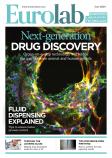The Gram negative bacterium H pylori is involved in the pathogenesis of several gastrointestinal diseases, ultimately leading to gastric carcinoma. Adhesion of the bacteria to the gastric mucosa is an essential step for colonisation and infection.
It is therefore important to know factors that influence the binding of the bacteria to gastric cells. MUC1, a mucin with a highly variable repetitive region (VNTR), has been recently identified as an H pylori binding target. In this work we tested the hypothesis that MUC1 VNTR polymorphism affects H pylori adhesion to gastric cells and thus plays an important role in the colonisation of gastric mucosa.
Enzyme linked immunosorbent assay (ELISA)-based adhesion assays were performed to measure the adhesion of different H pylori strains (HP26695 and HPTx30a) to gastric carcinoma cell lines (GP202 and MKN45) and GP202 clones expressing recombinant MUC1 with different VNTR lengths. The research article to be published on March 7, 2008 in the World Journal of Gastroenterology.
The results showed that MUC1 VNTR polymorphism influences the binding of H pylori to gastric cells, with the higher adhesion levels observed in clones with larger VNTR regions. Furthermore, higher adhesion was observed in co-cultures with the pathogenic strain (HP26695) when compared to the non-pathogenic strain (HPTx30a) and GP202 cell line when compared to the MKN45 cell line. This work contributes to the understanding of the interplay between host and bacterial factors in H pylori infection pathogenesis.





